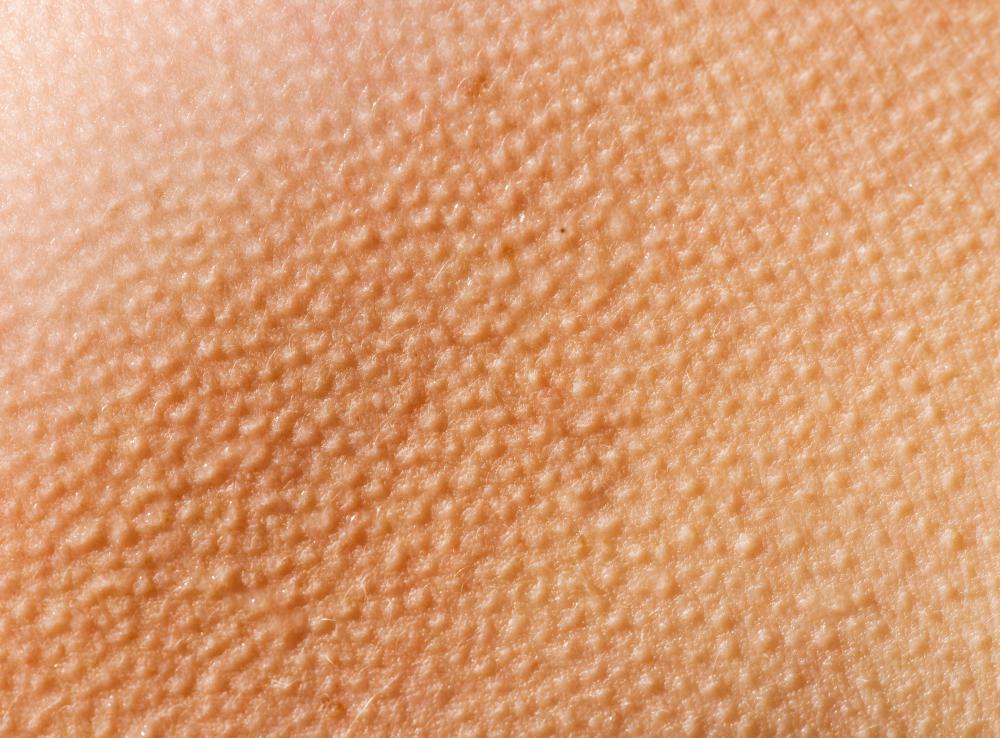At WiseGEEK, we're committed to delivering accurate, trustworthy information. Our expert-authored content is rigorously fact-checked and sourced from credible authorities. Discover how we uphold the highest standards in providing you with reliable knowledge.
What are the Symptoms of Opiate Withdrawal?
Opiates are narcotic drugs, meaning they tend to induce sleep. Examples of opiates that are commonly legal, although they are likely to be controlled, are morphine and codeine. Heroin and opium are opiates that are generally illegal. Any drugs in this category, whether obtained from a pharmacy or on the street, can be highly addictive. Overcoming such an addiction can be a long and difficult process, characterized by opiate withdrawal symptoms including muscle aches, diarrhea, and vomiting.
Many people think of narcotic addiction as a problem that results from illegal drug use. However, there are many people addicted to legal drugs. Some of these individuals become addicted without knowing they are at risk of addiction. Such examples include people who were severely injured and given potent pain relief drugs during their course of treatment. Whether the addiction results from legal narcotics or illegal narcotics, with a person’s knowledge or without her knowledge, she is likely to suffer withdrawal symptoms if she attempts to quit.

For many people, opiate withdrawal is like a terrible bout of flu. A person often experiences chills accompanied by goosebumps. There may be alternate periods where the person feels hot and sweaty despite the temperature. This person may also develop a runny nose and her eyes may water excessively.
Physical pains that result from opiate withdrawal include muscle aches and abdominal cramps. In addition to this, a person may have to make frequent trips to the bathroom. Withdrawal symptoms are often aggravated by diarrhea and vomiting. For some people, the vomiting is replaced with a significant amount of nausea.

There are psychological withdrawal symptoms as well. Many people who previously have no history of it develop anxiety. Addicted people may also be constantly agitated when they try to quit. A person suffering from opiate withdrawal is also likely to suffer with insomnia during some part of the withdrawal process.
The amount of time before a person begins to experience opiate withdrawal symptoms varies, depending upon the type of drug she has been using and the severity of her addiction. It can range from several hours to more than a day. It is important to note that opiate withdrawal is not limited to those who attempt to quit narcotics. A person can also experience these symptoms if she tries to reduce her consumption.

Opium withdrawal is not only very difficult, it can be dangerous. This is especially true for people who are already unhealthy. People who are aware that they are addicted to opiates and who want to quit are advised to enter a detox program or to consult a medical professional.
AS FEATURED ON:
AS FEATURED ON:






















Discussion Comments
I was on Oxy and Morphine for eight years. I heard so many bad stories about getting off. I think the stories were worse than getting of the meds. I was on six oxy 30s and two 100mg Morphine Sulfate for my pain and still was in pain. The surgeons either wouldn't touch me or gave me bad odds for correcting my lower back and leg pain from a role over and being ejected from a vehicle doing 70 mph.
If you take the meds for the right reasons and you want off, it's just as simple as willpower and slowly weaning yourself off. This is what I did and I had hardly any withdrawals. I got down to 10 mgs Percocets finally and just dropped a pill a day every week to two weeks. I also pumped myself full of B Complex, multi-vitamins and Magnesium a couple of weeks before I quit. I got down to two 10mg Percocets a day and I quit after being on them a couple of weeks. I had very few issues, no cravings and just dealt with some minor withdrawals and was very functional.
I think the big issue is I took it for pain and not the feeling and a lot of times, I would take extra pill a day because of the pain. But in my heart, I hated to rely on pain pills to keep me working. I hated being on them. I think because of my attitude it made things easier. Don't let the internet stories scare you. Put your faith in Jesus and tell your doctor what you are doing. Your doctor will know what's best for you. God bless.
Fourth day off opium and feel better that I have in eight years.
First off, why are you referring to people going through withdrawals as "she"?) Secondly, there are other withdrawal symptoms such as ringing in ears, RLS or RAS(restless ARM syndrome!) which no one, from doctors, to neuroscientists and pharmacists even discuss since, well, there isn't enough money for funding (thanks to the people who are against stem cell research) to truly understand the agony of getting through withdrawal.
There are also anticraving agents out there such as clonidine, and Passionflower to help, along with benzodiazepines, although those who do take prescription meds like benzos to get off drugs like suboxone, a long binding affinity drug, need to be very very careful that they do not form addiction to benzos.
Please, change the format on this forum now. There is too much stuff that can help wean or get others off opiates that going to 12 steps or rehab simply doesn't address. One has to be mentally prepared first off to want to get off!
Post your comments